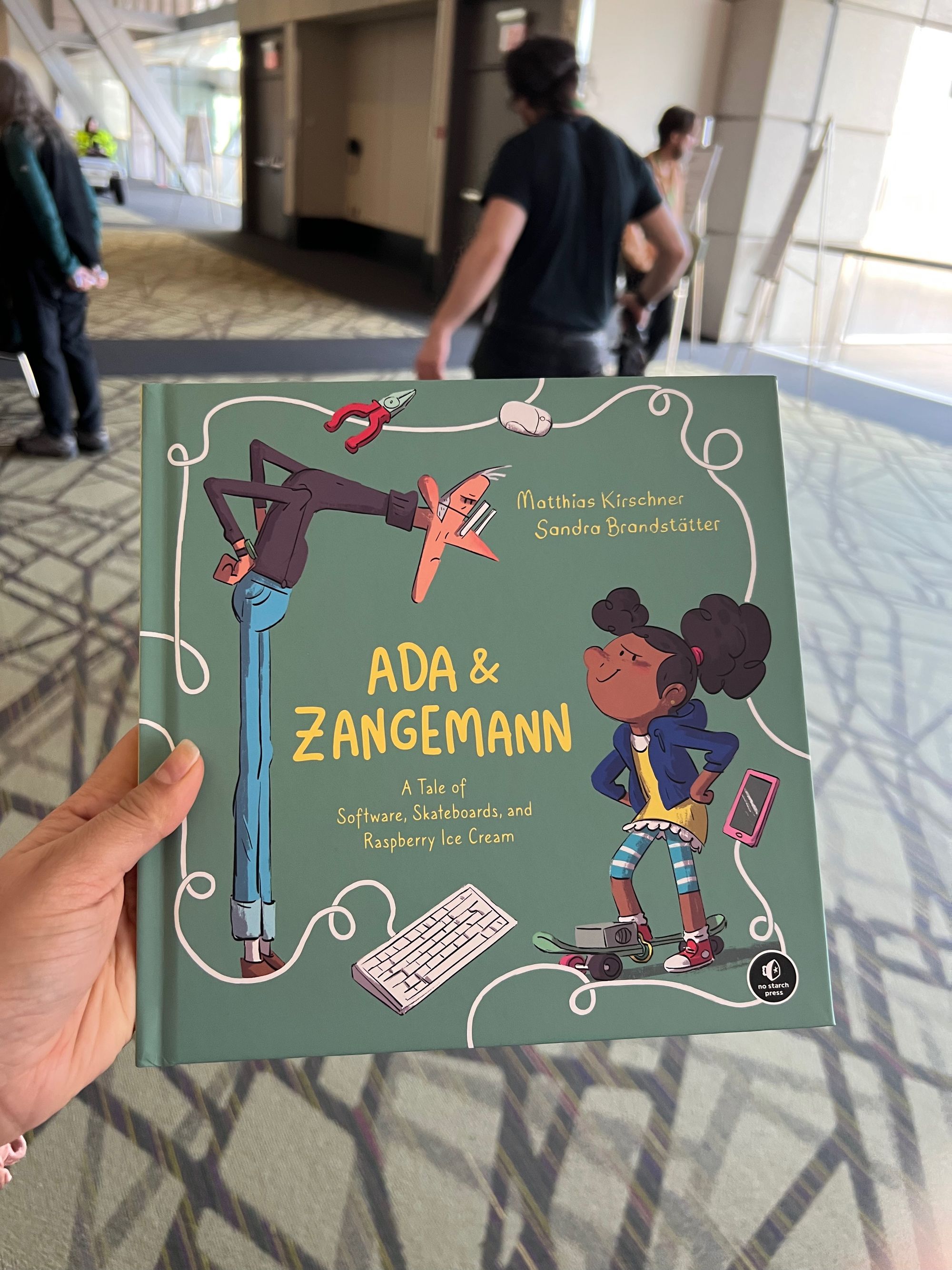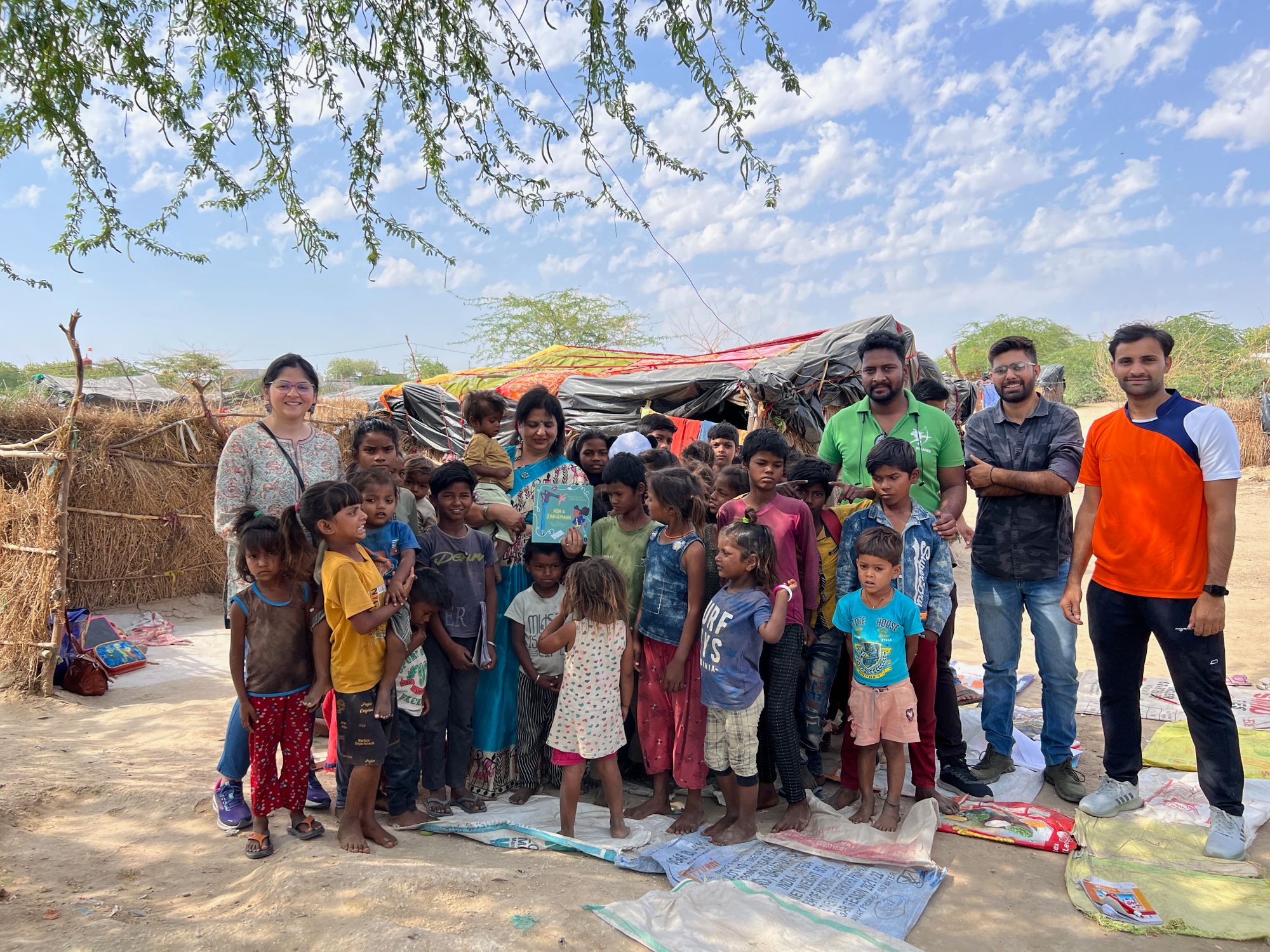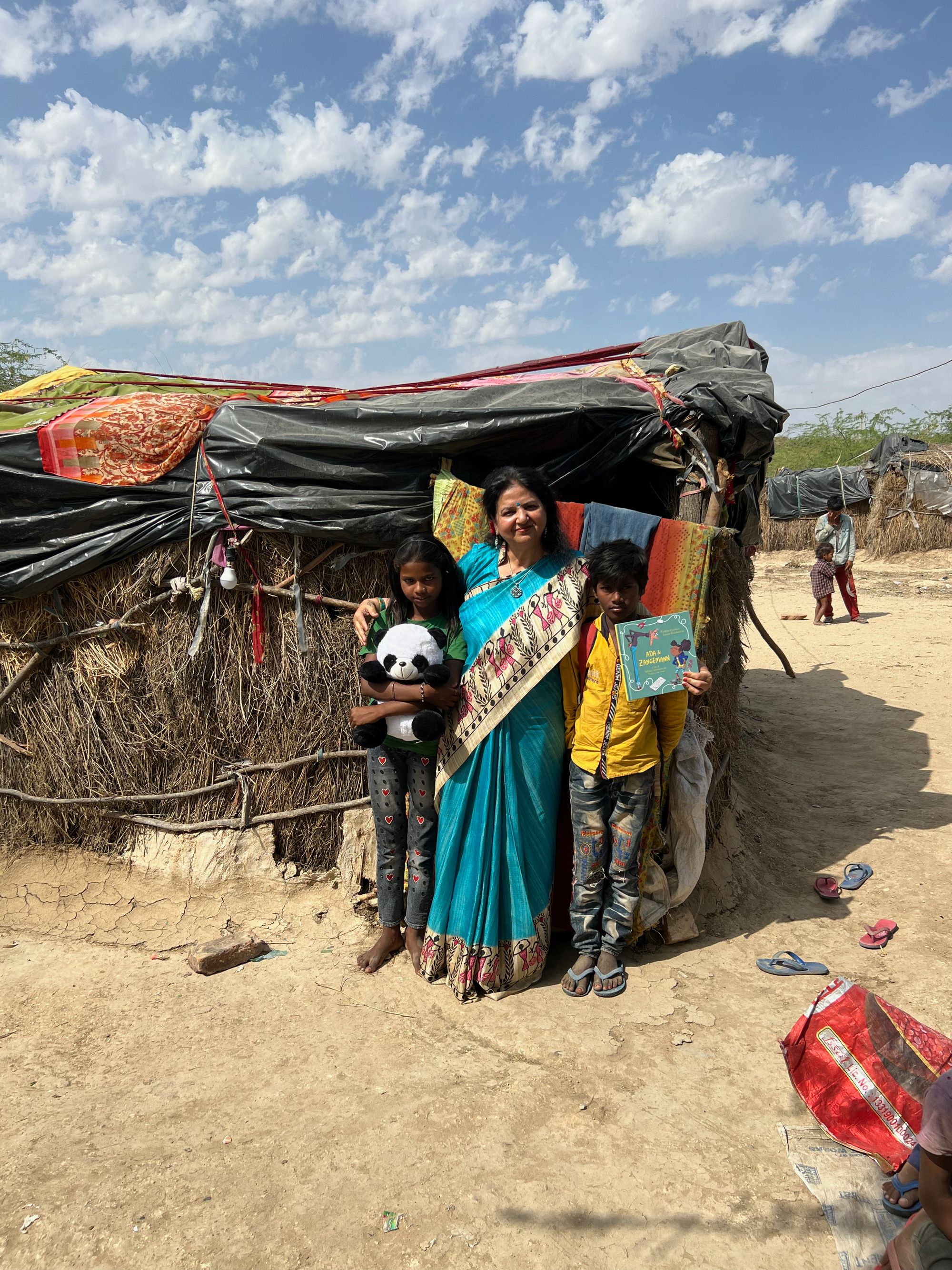You know, I have been organizing storytelling sessions for the past couple of decades. My children were my first avid listeners. Once I realized I might have a knack for this, I started telling stories in my school and among the kids in my neighborhood. I gradually moved to larger audiences in book fairs and literary festivals like Bookaroo Festival, Junior Writer Bug Children's Festival, and others. Storytelling started becoming a passion of mine. I started a Youtube channel where I would document my storytelling and other adventures. Since my stories are mainly for children, toys became an integral part of them. In fact, I grew very attached to one of them, in particular, a panda I had purchased abroad.



My daughter Srishti was the one who encouraged me to take this storytelling session. She lives in the US, and on her recent trip to India, she shared with me her experience of attending a free and open-source software-related event called LibrePlanet in Boston. She met a German author, Matthias Kirschner, there and had a chance to read his book, "Ada & Zangemann - A tale of software, skateboards, and raspberry ice cream". Srishti is passionate about free and open-source software, and this book deeply inspired her. While going about our daily chores one day, she floated the idea of us together taking a storytelling session based on this book with children in our neighborhood slums.
I'll be honest; this initially seemed like an impossible feat to me. This is a case where the storyteller and the audience will be out of their depths. Not only was I used to telling stories in Hindi, but the topic behind this story will also be alien to most children in the slums of India. Most of them are unfamiliar with computers, so I felt that hardware and software concepts would be too complex for them to comprehend.
But my daughter was insistent. She said she had glanced at my YouTube channel and had full faith in my abilities. After some deliberation, I decided to accept the challenge. Madhavi Joshi from Robin Hood Army helped set up the workshop. On a sunny Sunday morning, we set out for our field trip with my trustee Panda sidekick in my bag, along with some chips, biscuits, and toffees.
The original story in Matthias' book is about two children- Ada and Zangemann. Ada is poor- her entire savings fit into a cookie jar, and she had to tinker with her toys with items she found in the trash. Zangemann, on the other hand, is extremely rich. He lives in a hi-tech, multi-storied house with countless rooms and a swimming pool. He has access to expensive technologies and wants to use them daily, like fixing his skateboard, cleaning his room, and making an ice cream machine.
Telling the story of rich boy Zangemann to children living in huts would always be difficult. So, I focused more on Ada and her achievements. She also only has a little, except her wit and resourcefulness, with which she achieves her goals. I more or less "Indianized" the story entirely. Ada's tiny cottage became a slum hut, and her day-to-day life became ones that these children could associate with very well, like her mother making roti on a stove and her father going to work on a bicycle. I also localized the names like Ranjan, Rajkumar, Sonu, etc.
But the main issue remains yet to be solved! How do I explain heavy, technical concepts like free and open-source software to children who have never seen a computer before? I decided to orient them to a computer by comparing their body to hardware and their soul to software. Like they can tell their soul to stretch their hands and clap, a person can similarly add a few lines of code in the software to make changes in the hardware.
Ada wanted to solve her parents' problems using computers but had no money. As the story progresses, she goes to a dream world where her father goes to work without pedaling on the bicycle; her mother makes roti without lighting the stove. This piqued the children's interest- they wanted to know what else they could do using the computer. The possibility of making ice cream using a computer intrigued them- after all, who doesn't love ice cream?
Srishti and I were both pleasantly surprised with the outcome of this workshop. Neither of us expected that we could successfully explain foreign concepts like open-source software to children who had only heard of computers. I was glad to be part of such an innovative storytelling session where I could use my skills fully!
About the post author: Sangeeta Sethi is an avid reader and storyteller. She recently took a storytelling session on computers and coding in collaboration with the Robin Hood Army and us with kids at Bikaner in rural Rajasthan. Today, she shares her experiences with us.
Originally written in Hindi by the author, translated by the Unstructured Studio team
